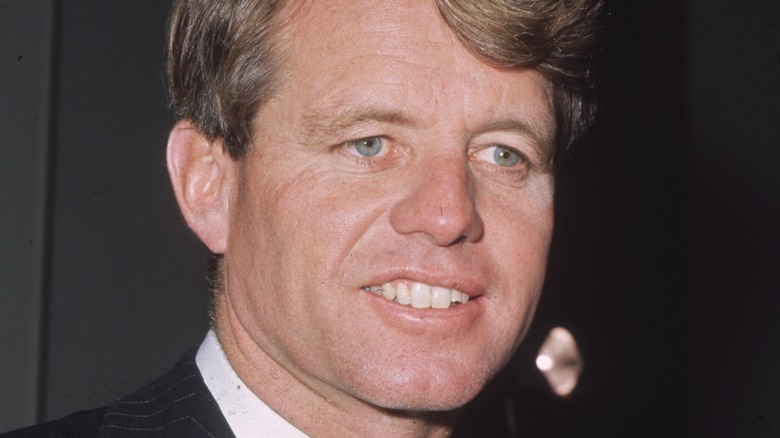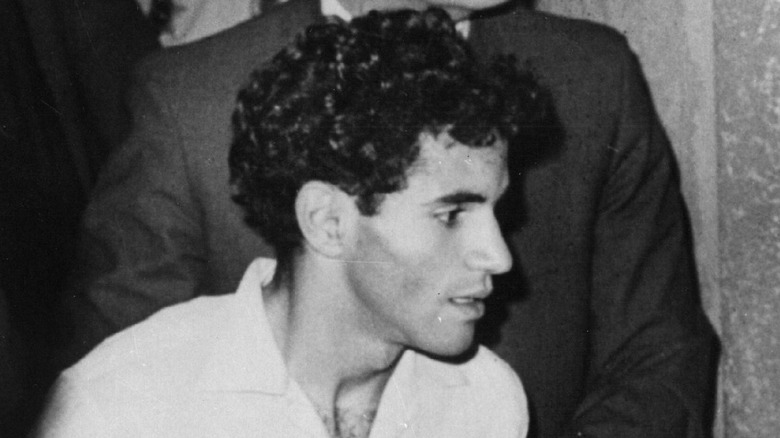What Really Happened After Robert Kennedy Died?
At nearly 1 a.m. on June 5, 1968, Robert F. Kennedy — a former senator and brother to President John F. Kennedy, for whom RFK also served as attorney general — made his way from the stage at the Ambassador Hotel in Los Angeles after delivering his acceptance speech for the California Democratic Party's nomination for president. While passing through the kitchen area of the hotel, shots rang out, and Kennedy was killed. This was only two months after the assassination of Martin Luther King Jr. as well as RFK's own brother, JFK, in 1963. These were a series of high-profile murders that, among other events, upended the country at an already tumultuous time. The controversial Vietnam War, for example, was still raging, and the struggle for civil rights was on the minds of many.
According to RFK's assassin, Sirhan Sirhan, he shot Kennedy because the senator supported the oppression of the Palestinian people, according to U.S. News. At that time, however, Kennedy was viewed by many liberal activists as the next great agent for change, especially if he could take the White House in the fall election, which seemed likely. Following the death of the political leader, though, the hope and idealism of the 1960s would never recover.
The killing of RFK further destabilized the country
As reported by the Los Angeles Times, the killing of Robert Kennedy was a pivotal moment in the history of the United States, at a time when the country was already fraught with tension and division. Beloved by many minorities and liberal-thinking activists, Kennedy's killing was the final straw for thousands, especially since it came so close to the murder of Martin Luther King Jr., and public sympathy for Kennedy was already at an all-time high, given the killing of his own brother.
What's more, the war in Vietnam arguably worsened after RFK's killing, leading many to believe the nonviolent path to social justice as presented by leaders like MLK among others was inadequate, according to U.S. News. The most acute effect of RFK's assassination, however, was felt when Nixon took the presidency from Hubert Humphrey, who ran on the Democratic ticket following Kennedy's death. The Watergate scandal would subsequently bring down the Nixon presidency, the final nail in the coffin for many in the American public as far as public trust in government was concerned, tainting the American view of elected leadership for years to come.

